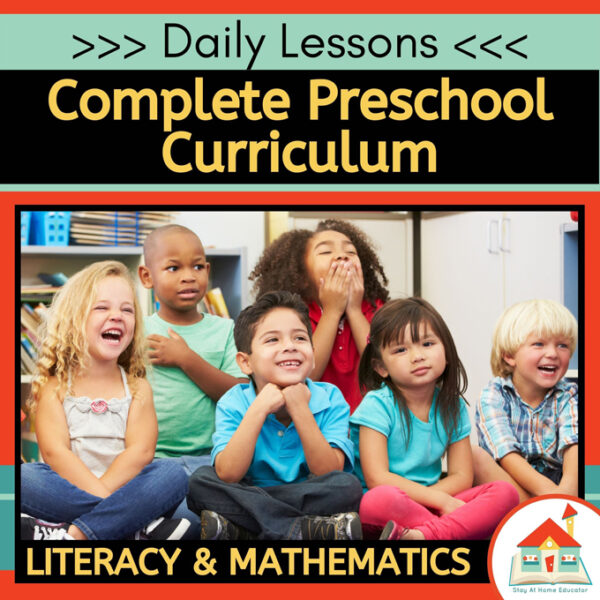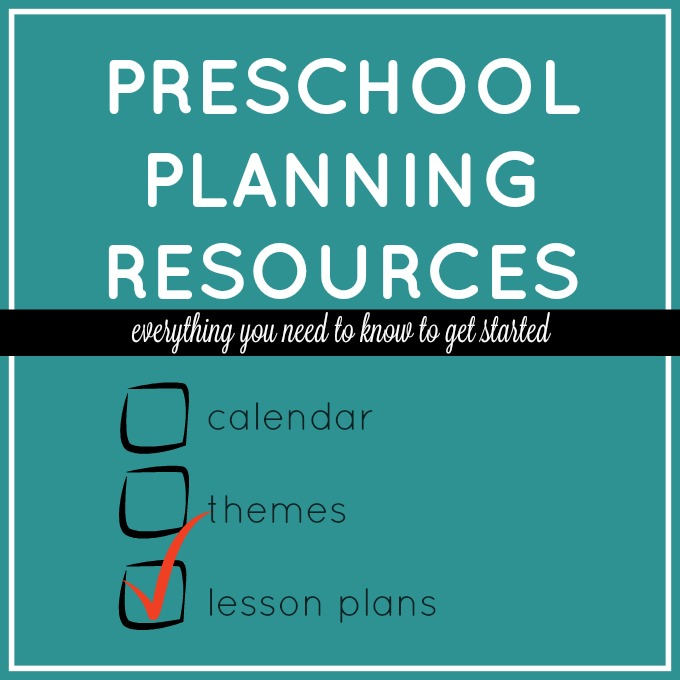One of the most important parts of teaching is being prepared and this includes lesson planning.
Whether you are one who plans a year in advance with a detailed scope and sequence or one who plans a day or week at a time, having a plan helps keep teaching deliberate and focused on what the children need.
And with a few simple steps and the right resources, you can be intentional in your planning, offering purposeful learning opportunities.
Top 10 Tips for Writing Preschool Lesson Plans
Preschool Lesson Planning Navigation
General Preschool Planning
Learn At Home Preschool Lesson Plans Collection
A Step-by-Step Guide to Writing Preschool Lesson Plans
Preschool Schedules Guidebook
Lesson Planning Ideas
Preschool Methods
Get Done-for-You Daily Lessons in Preschool Curriculum
The Complete Daily Lessons in Preschool Literacy & Math Curriculum has everything you need to teach your preschoolers literacy and math in a fun and engaging way, without all the boring worksheets!
-
Product on sale
 * Daily Lessons in Preschool Literacy & Math CurriculumOriginal price was: $270.00.$121.50Current price is: $121.50.
* Daily Lessons in Preschool Literacy & Math CurriculumOriginal price was: $270.00.$121.50Current price is: $121.50.
The 40 weeks of daily lesson plans in math and literacy include:
- yearly scope and sequence
- daily learning routines
- weekly discovery concept prompts
- targeted, skill-based learning activities
- integrated literacy activities
- weekly printable math and literacy centers
- teaching tips
- bonus activities
What to Consider When Planning Activities for Preschoolers
There are many ways to go about writing preschool lesson plans, and chances are that any preschool teacher will try out a few different approaches before settling on one. Lesson planning can be time consuming, so finding an approach that works is important because children’s education depends on effective lesson plans with excellent execution.
Thoughtfully curated lesson plans will ensure children have fun learning in developmentally appropriate ways, all while hitting benchmarks to prepare them for kindergarten.
If you’re wondering how to write a lesson plan for early childhood education, and in particular, how to make a lesson plan for preschool, here are 10 lesson planning tips to get you started.
What to Do BEFORE Writing Preschool Lesson Plans
The following are some important things to consider before writing lesson plans for preschoolers.
- Think about the big picture.
- What are the goals for the year? A carefully written scope and sequence that is developmentally appropriate helps keep teachers and parents on track.
- Think of it as monthly little goals that build upon one another to reach the big goals by the end of the school year.
- Be knowledgeable of your students’ current skills.
- It’s also important to know what skills they should be proficient in by the end of the school year.
- To write useful lesson plans, you need to establish your students’ skill sets in the different areas of development, including oral language and reading readiness, number awareness and math readiness, gross and fine motor skills, and social and emotional development.
- Have a flexible schedule.
- Schedules are important for children. They help children feel prepared by anticipating order and routines.
- But schedules do not have to be set in stone. Often the best schedules for young children are those that allow enough flexibility for children to have a say. And, of course, if something in the schedule isn’t working, then change it!
- Allow for student choices.
- Children love to make their own choices and allowing children opportunities to make choices encourages independence and critical thinking.
- When writing preschool or pre k lesson plans, it is important not to eliminate those choices, which is one reason why free choice centers have become so popular.
- Keep it developmentally appropriate.
- Not every teaching strategy is appropriate for preschoolers. They have shorter attention spans and a greater need to move and play than older children do, so keeping activities and games developmentally appropriate should be a top priority.
- Children learn best by hands on activities that are interactive, so don’t rely on worksheets for this age group.
How to Write Preschool Lesson Plans
The following are some important things to consider while writing lesson plans for preschoolers. Simple put, it’s for process for how to lesson plan for preschoolers.
- Identify purpose.
- If a lesson or activity is going to be included, it needs to have a specific purpose within the scope and sequence of skills. When choosing an activity to include in your lesson plans, ask yourself what skills it targets.
- And don’t forget that social and emotional skills, most often practiced through play, are of huge value to the development of preschoolers.
- Keep activities simple.
- Chances are that if you have to write out preschool activities in paragraphs of details, you’ve chosen the wrong activity. Don’t underestimate the value of a simple activity.
- If preschoolers need something more complex, they will show you through their play, however, a single activity still shouldn’t take pages to write up. Sometimes it is the simplest dramatic play, learning centers, or circle time activities that have the biggest impact.
- Preschool activities should include a range of skills, and ideally, those skills should follow a scope and sequence. Include:
- math activities
- alphabet and beginning sound activities
- fine motor skills
- gross motor play
- sensory bins
- process art
- dramatic play
- social-emotional activities
- Plan around student interest.
- Let’s face it, if a child isn’t interested, the offered activity won’t be effective. When planning, choose themes that are of high interest to the children in your class, and also consider how favorite activities can be incorporated into the theme, too.
- Choose an approach.
- Play-based or skills-based? Teacher-directed or child-led? Or a modge-podge of everything? You will most likely find that your approach will vary based on the objective, and that is ok.
- The important thing to remember is to choose an approach that is appropriate for young learners. For example, you will find very few worksheets on this website. (wink, wink).
- Write it down.
- Use a template to record your ideas for your preschool lessons. You can add as much or as little detail as you want, but be sure it gets written down, even if it is just a list. You’ll thank me.

Pre K Lesson Plans
Developing impactful pre-K lesson plans is a critical aspect of teaching our earliest learners. This comprehensive guide to pre k lesson planning will dive into the importance of preschool lesson plans, offering valuable advice on crafting them, and presenting some of the top lesson plans tailored to your requirements.
It will also discuss ways to evaluate students to guide subsequent lesson planning.
It’s essential when engaging with these young learners to have a diverse set of lesson plans prepared to encourage their overall development and progress.
Get Weekly Lesson Plans for Preschool
There’s nothing more overwhelming than showing up for class one morning and not having your lesson plans done. The time to start planning is well before the day you intend to teach, which is why I’m an advocate for lesson planning a year in advance.
But you can also save time by utilizing the loads of preschool curriculum and lesson plans right here on this website. Making a plan for preschool themes and lesson planning has never been to easy!
Learn At Home Preschool Lesson Plans
Get Systematic Preschool Lesson Plans in the Full Curriculum
Imagine what it would be like if you knew exactly what to teach, when to teach, and how to teach it? These lesson plans for preschool are done-for-you! All you have to do is open and teach!
Daily Lessons in Preschool Literacy and Math Curriculum
How to Write Preschool Lesson Plans a Year in Advance
Intentional teaching begins with planning, which is why your entire preschool year can be planned out with five easy steps. Everything from establishing a calendar to planning fun and educational activities, there are five simple steps to establishing your own preschool curriculum.

